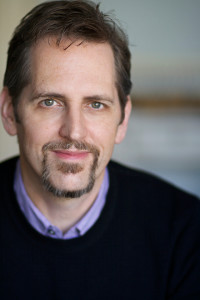Generally speaking, this “fool” is surrounded by more worldly types who value money, power and position, and are more ruthless and/or selfish — or are just kind of idiots. The main character typically has at least one ally and/or love interest, and may or may not have a specific
antagonist, but what they always do have are people who just don’t quite get them — who might look down on them, might oppose them, or might actually try to help them, but who lack the spiritual wisdom that the “Fool” tends to have naturally.
That doesn’t mean it’s a smooth and easy ride for the main character. As in every genre, the “fool” main character has one big problem that demands their attention, and can’t really be permanently solved, for most of the movie. Only at the end do they break through somehow. It’s an uphill battle in which they are the ultimate underdog, in over their head in a world that doesn’t value or understand them. And they might not even value or understand themselves, given that they typically have some sort of handicap, or inability to get what they most want, in the world. But they stick to their guns (perhaps not seeming to have any choice), and in the end, it usually works out.
As with all the genres,
Save the Cat Goes to the Movies breaks “Fool Triumphant” into five subgenres each, which describe different environments or situations where the “fool” can be up against an “establishment” that seems much more powerful than they are:
- Political Fool (Dave, The Princess Diaries)
- Undercover Fool (Trading Places, Mrs. Doubtfire)
- Society Fool (Temple Grandin, Wonder)
- Fool Out of Water (Crocodile Dundee, Enchanted)
- Sex Fool (Roxanne, Bridget Jones’s Diary)
As you can see, this genre is mostly used for lighter, feel-good fare, typically comedies with heart, or dramas with comedic elements. It’s not typically used for stories with life-and-death
stakes. And for some reason, not a lot of the
scripts I read tend to make use of this genre, which is why I haven’t blogged about it sooner. Maybe it’s because it doesn’t line up so clearly with a parallel traditional genre. (Whydunit = Mystery; Buddy Love = Love Story; Monster in the House = Horror; Superhero = Superhero.) Or maybe it’s because most writers think the main character of a story has to significantly change, and have a big moral
arc, which I think is something of a fallacy. They grow and evolve, but they don’t always learn a lesson or become better people. In this genre, they’re already good enough. It’s the people around them who tend to learn something and change, because of them.
Let me make a little pitch for “Fool Triumphant.” By choosing it — and making concept choices that fulfill its key elements — you can give a primal, universally relatable emotional core to a story that might otherwise lack one. The question is, can you convincingly turn your main character into this significant of an underdog, around something that’s really important and impactful to them? The best main characters, after all, are really “up against it” in a story, with little chance of success. So why not build that into their very nature and place in the world, from the start?
As you can see from the examples above, a “fool” can be competent and powerful in some arenas — just not the one they find themselves thrust into, in the story. There’s a lot of flexibility here, because there are so many ways that a character can be seen as a “fool” — where they need to somehow get past that, in order to have the life that they want. And it’s something most of us can deeply connect with, as we’ve all been there, at some point.
As always, please post comments and ask questions if you have them!



Excellent article, thank you! I think Being There is an excellent Fool Triumphant film. Your thoughts? Thanks again!
Thanks! And yes, Blake Snyder calls BEING THERE a “Political Fool” and provides a full beat sheet for it in SAVE THE CAT GOES TO THE MOVIES. See also: https://www.flyingwrestler.com/save-the-cat-genres-movie-list-with-erik-borks-additions/
Loved your book,THE IDEA, and really enjoy your site.
I’m toying with writing an anti hero protagonist, or a possibly a dual narrative. Would something similar to The Talented Mr. Ripley qualify under Fool Triumphant even if the hero is a “bad guy”?
Thanks Lisa!
I probably wouldn’t call Ripley a Fool Triumphant because they are usually about someone with better values than the “establishment” in some way, who we root for.
I’d probably classify Ripley as a Golden Fleece (subgenre Solo Fleece) where his prize is Dickie, a life as Dickie, and ultimately getting away with his crimes (it evolves over the course of the movie).
Thanks for this blog post! I’m currently working on a ‘Society Fool’ script myself and looking for more comps. The ones in “Save the Cat Goes to the Indies” were the same as in “Save the Cat Goes to the Movies,” so I’ve been on the lookout for more examples. Your examples of “Temple Grandin” and “Wonder” are ones I haven’t seen in any of the STC Books OR blog, so thanks for that.
Do you have any more? 🙂
Glad to hear that was helpful!
Off the top of my head I don’t. Have you seen or read most of those examples? I think it’s a pretty high quality list with some pretty clear common traits that would hopefully get you started… But of course “more” is always better… 🙂
Let me know if I can help further…
Hi Erik,
I know you reference “Wedding Crashers” and also that Blake Snyder wrote a beat sheet for it. After careful consideration, I believe this rom-com actually might be “Undercover Fool” under the Fool Triumphant category. What do you think? They enter into Act 2 with name changes and in disguise/fake past. And the “insider” is McAdams finance, played by Bradley Cooper, perhaps?
I love Wedding Crashers for touching on so many aspects of the categories: Buddy Movie:Professional Love/Rom-com Love. It’s also a kind of “Rites of Passage” story as the buddies pass from adolescent/college-like behavior into marriage/family, which is touched on in the set-up when Vaughn discusses celebrating Wilson’s birthday together since they were kids. But I think the main category might be “Undercover Fools” since Owen’s relationship problem stems from having taken on a disguised identity. It seems like many of my favorite comedies are “Undercover Fools,” because it’s just so funny to watch people fake it!
Interesting Megan. I never thought of it before but I suppose you could say they’re fools who transform and somehow emerge victorious in the establishment of this family’s world. I always just saw the rom-com/buddy love aspect because you do root for Owen to be with Rachel in the end and the focus is the huge thing in the way of that. Whereas in a “fool” the focus tends to be more on the problem of the “fool” status and you want to see that resolved. I suppose there is also some ROP in that this is a “wrong way” to deal with Owen’s mid-life ennui about the lives they’ve been living (doing one last crash) and he learns something from that but I don’t think it’s a classic ROP in how it plays out with his success in the end. I’d still say Buddy Love first and foremost. But it’s not uncommon for good movies to have a home genre and several others you could argue they also meet the criteria of (such as ERIN BROCKOVICH). Also sometimes the B Story can feel like a different genre (often Buddy Love) from the A Story, though in this case I think the A Story is the love story.
Great Pitch!
I think that maybe what happen is that in the conflict “man versus society/establishment”, writers prefer to take the “serious” way of “Institutionalized”, because you know, we are “serious” people jeje and because writing good comedy is extremely difficult.
My favorite is Blast from the Past in which Brendan Fraser play a man raised as a child in a bomb shelter because his parents mistakenly think there was an atomic attack during the Cuban crisis in 1962. When he emerges with old school morals into a much more cynical world 35 years later the fun begins.
I’m not a fan of this genre, but I would strongly recommend one film that I think fits in this category – Charly (aka Flowers for Algernon). It’s a beautiful sad story about the rise and fall of a man who is a profound fool. There have been many remakes but I still prefer the 1968 version starring Cliff Robertson. Here’s the trailer:
https://www2.bing.com/videos/search?q=flowers+for+algernon+cliff+robertson&&view=detail&mid=DD3B70633B2C14A01078DD3B70633B2C14A01078&&FORM=VRDGAR
Hey Eric,
Hope you’re doing well. Loved this by the way… Just out of interest, what type of movie would you say Zombieland (1) is?
It would seem to be a Golden Fleece movie – he’s looking for a home – and then realises he finds it within the group of misfits he learns to call friends. It certainly contains elements of the “sex” fool…
A
I think you’re right that it’s a Golden Fleece — with a road, a team and a “prize,” even if that prize varies from character to character. And of course the real prize is an internal realization and change — but the external prize is plenty difficult, high-stakes and entertaining to watch, which I think is key.